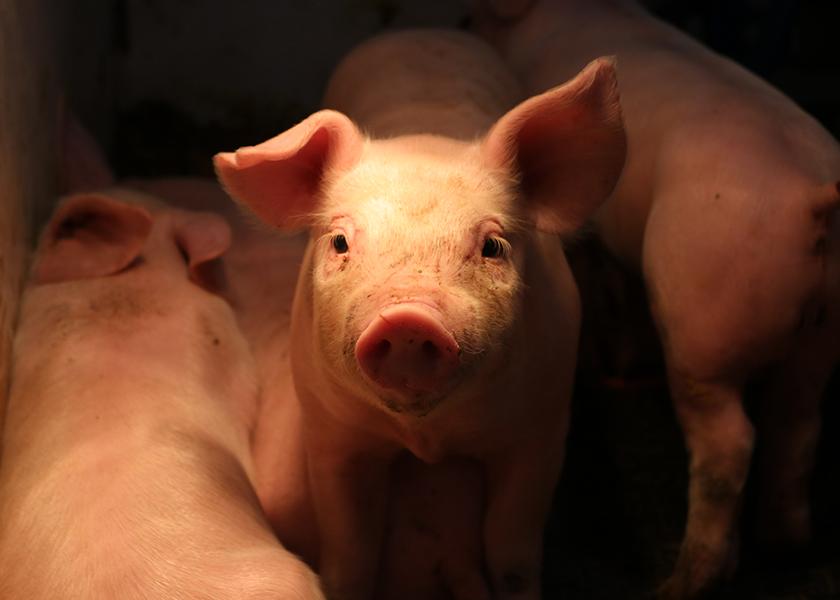Dying Navy Veteran Receives Pig Heart Transplant

Surgeons have successfully transplanted a pig’s heart into a dying man – only the second patient to undergo such an experimental feat, the Associated Press (AP) reports. Two days after his surgery, the man was cracking jokes and able to sit in a chair, Maryland doctors told AP on Friday.
Lawrence Faucette, a 58-year-old Navy veteran from Frederick, Md., was facing near-certain death from heart failure. Unfortunately other health problems meant he wasn’t eligible for a traditional heart transplant, doctors at University of Maryland Medicine told AP.
Doctors said they were thrilled at Faucette’s early response to the pig organ, but pointed out that the next few weeks are critical.
“You know, I just keep shaking my head – how am I talking to someone who has a pig heart?” Dr. Bartley Griffith, who performed the transplant, told AP. He said doctors are feeling “a great privilege but, you know, a lot of pressure.”
Last year, the same Maryland team performed the world’s first transplant of a genetically modified pig heart into another dying man, David Bennett, who survived just two months. Faucette was informed about the first case but decided the transplant was his best shot, AP reports.
“Nobody knows from this point forward. At least now I have hope and I have a chance,” Faucette said in a video recorded by the hospital before the operation.
Last year, there were just over 4,100 heart transplants in the U.S. Although this is a record number, AP reports, the supply is tight as only patients with the best chance of long-term survival get offered one.
"We have no expectations other than hoping for more time together. That could be as simple as sitting on the front porch and having coffee together," said his wife, Ann Faucette, in a statement. Special permission from the Food and Drug Administration was required to treat Faucette outside of a rigorous trial, because he was out of other options, AP reports.
"It took over 300 pages of documents filed with FDA, but the Maryland researchers made their case that they’d learned enough from their first attempt last year – even though that patient died for reasons that aren’t fully understood – that it made sense to try again," AP reports.
Faucette, retired as a lab technician at the National Institutes of Health, had to agree he understood the procedure’s risks.
Attempts at animal-to-human organ transplants have not been successful in the past as people’s immune systems immediately destroyed the foreign tissue. Today scientists are trying again using pigs genetically modified to make their organs more like humans'.
Scientists at other hospitals have recently tested pig kidneys and hearts in donated human bodies, hoping to learn enough to begin formal studies of what are called xenotransplants.
What’s different this time?
After last year’s transplant, scientists discovered signs of a virus inside the pig's heart – and they now have better tests to screen for viruses.
Porcine cytomegalovirus (PCMV), found in the transplanted pig heart last year, may have contributed to the dysfunction of the transplant, a University of Maryland School of Medicine article said.
"Activation of the virus may have occurred after the patient’s anti-viral treatment regimen was reduced to address other health issues. This may have initiated an inflammatory response causing cell damage. However, there is no evidence that the virus infected the patient or spread to organs beyond the heart. Improved PCMV testing protocols have been developed for sensitive detection and exclusion of latent viruses for future xenotransplants," the article said.
Faucette has end-stage heart failure and was out of other options, but doctors say he wasn’t as near death as Bennett. By Friday, Faucette's new heart was functioning well without any supportive machinery, the hospital told AP.
“It’s just an amazing feeling to see this pig heart work in a human,” said Dr. Muhammad Mohiuddin, the Maryland team’s xenotransplantation expert. But, he cautioned, “we don’t want to predict anything. We will take every day as a victory and move forward.”
The pig heart, provided by Blacksburg, Va.-based Revivicor, has 10 genetic modifications, AP reports. The modifications knock out some pig genes and add some human ones to make it more acceptable to the human immune system.
More from Farm Journal's PORK:
First Pig to Human Heart Transplant Ends in Patient Death







